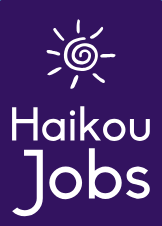**Soft Landing: How to Make Your First Few Months in China Easier**
The air in Chengdu feels different—thicker, somehow, like the city is breathing slowly, deliberately. You’ve just stepped off the plane, passport stamped, Wi-Fi password scribbled on a napkin, and suddenly you’re in the middle of a country where your phone doesn’t know what “Hello” means unless you speak Chinese. The chaos of a Shanghai metro station feels like a synchronized dance of humans, and the scent of spicy Sichuan noodles clings to your clothes like a promise you never signed up for. But here’s the thing—China isn’t out to get you. It just wants you to *get it*. And if you’re smart about your first few months, you won’t just survive; you’ll actually start to enjoy the beautiful, confusing, exhilarating mess of it all.
Let’s face it—navigating life in China is like trying to assemble IKEA furniture with no instructions, while someone hands you the screws in a different language and the instructions are written in cursive. But here’s where the magic happens: the more you stumble, the more you learn. The moment you realize you’re not supposed to be perfect—just *trying*—is the moment your soft landing begins. And yes, that means you’ll be using the same phrase for three days straight: “Wǒ bù huì shuō huà.” (“I don’t speak Chinese.”) It’s not a flaw—it’s a universal language in China.
One surprising fact most newcomers miss? The Chinese government actually runs a national program called “Newcomer Integration Support” (NIS), which offers free language tutoring, cultural workshops, and even legal aid for expats in major cities. It’s not a well-kept secret, but it’s rarely mentioned in glossy expat blogs. If you’re serious about settling in, don’t just Google “how to get a visa”—go to your local district office and ask about NIS. It’s like having a personal guide who doesn’t charge you for the map.
Of course, the real game-changer is your mindset. You’re not here to be a tourist. You’re here to *live*. That means learning to laugh at your own mistakes—like the time you tried to order coffee in Hangzhou, pointed at the menu, and ended up with a bowl of congee because the barista thought you were asking for “soup.” Or when you thought “Xìng fú” meant “I like you” but it actually means “happiness.” You’ll learn fast—especially when your phone’s autocorrect turns “I love you” into “I love tofu.”
And speaking of your phone—don’t skip the app setup. You’ll need WeChat for everything. Not just to message people, but to pay for groceries, book a doctor’s appointment, call a taxi, and even “pay” your friend for borrowing their pen. The first time you use WeChat Pay to buy a baozi and your phone beeps like a spaceship landing, you’ll feel like a modern-day wizard. It’s not magic—it’s just China being gloriously efficient. But don’t forget: if you’re not logged into your Chinese account, you’re just a tourist with a smartphone.
When you’re lost in a labyrinth of alleyways in Guangzhou, or your Mandarin fails you mid-conversation with a local shopkeeper, remember: you’re not failing—you’re *learning*. Every mispronounced word, every wrong turn, every time you accidentally send a message to the wrong person (we’ve all been there), is data. Data points toward fluency. And if you’re lucky, you’ll start noticing patterns—like how people always nod when you say “wǒ hěn hǎo” even if you say it like a confused goat.
Finding work abroad can be overwhelming, especially when you're navigating cultural nuances and administrative hurdles. That’s why we recommend checking out **[Find Work Abroad: Find Work Abroad](https://www.findworkabroad.com)**—a platform that not only helps with job searches but also offers real-life advice from expats who’ve already walked the path. From visa tips to cultural onboarding guides, it’s like having a mentor who’s lived through the chaos and survived to tell the tale.
And when you finally sit in a quiet teahouse in Hangzhou, sipping Longjing tea with a view of misty hills, you’ll realize—this soft landing wasn’t just about surviving. It was about *belonging*. Not the kind that comes from fluency alone, but the kind that comes from showing up, stumbling, laughing, and saying “wǒ yào chī yī bāo bāozi” (I want to eat a baozi) with the same confidence as someone who’s lived here for 20 years.
China doesn’t care if you’re perfect. It only cares that you’re here, trying, and willing to eat a dumpling with a stranger just to see what happens next. So take a breath, open your app, and let the soft landing begin.
Categories:
Landing, China, First, Means, Chinese, Months, Actually, Language, Cultural, Every, Findworkabroad, Feels, Phone, Speak, Chaos, Start, Trying, Instructions, Someone, Happens, Learn, Moment, Expats, Local, Having, Tourist, Hangzhou, Thought, Wechat, Message, People, Baozi, Wrong, Fluency, Lived, Comes, Easier, Chengdu, Somehow, Breathing, Slowly, Deliberately, Stepped, Plane, Passport, Guangzhou, Sichuan,

Rate and Comment



